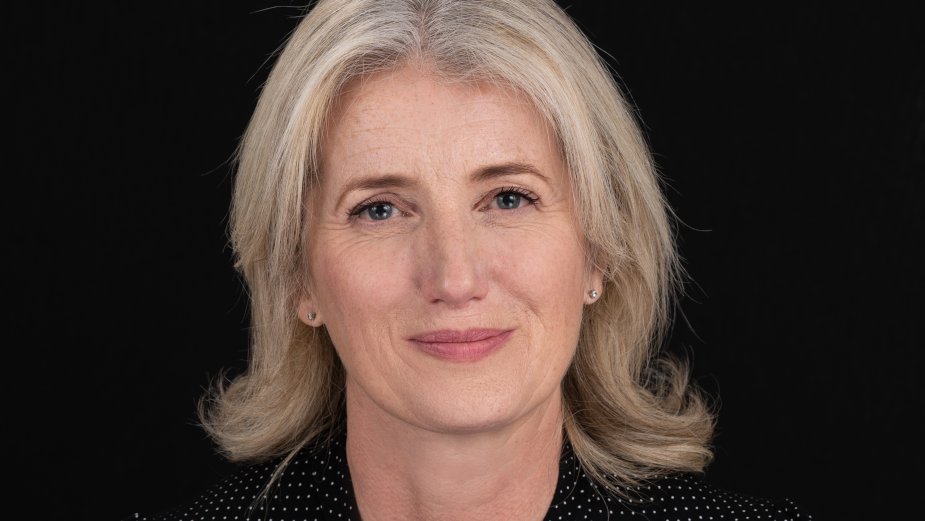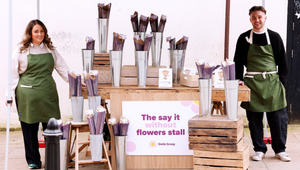
How Do We Ensure We Promote Older Women in the Right Way?

Last month we saw the launch of AMV BBDO’s ground-breaking TV ad for TENA about the menopause. Using the relationship between a mother and her daughter to unapologetically highlight the realities of the menopause - night sweats, disturbed sleep, chin hairs and all – it was a worthy winner of Channel 4’s prestigious Diversity in Advertising Award.
But what about the way women in their 40s and 50s are represented by – and in – both the advertising industry? How inclusive are we when it comes to ageing and the menopause and what more could be, and should be, done to keep talented women in our brilliant industry?
Here, Karen Buchanan, CEO of McCann Manchester and European Chair of McCann Worldgroup’s Conscious Inclusion Council, gives her view….
After a historic Jubilee weekend, I have been thinking about the Queen’s 70 year reign. Whatever your views on the monarchy, there is no doubt that 70 years as head of the UK monarchy is quite an achievement. No-one has ever commented on her age or her ability to perform her role or indeed her challenges as a woman in a high profile position.
Unfortunately, the same cannot be said for ‘older’ women in many industries and professions. Particularly those going through the menopause.
Yet we are all living for longer and almost a third of a woman’s life will be lived post-menopausally. Today’s 50 is not the same as it was for our parents. We are generally healthier, more active and more entrepreneurial than ever before. Women over 50, in particular, have been dubbed ‘Super Consumers’ by Forbes, holding $15 trillion in spending power and controlling 95% of their household purchasing decisions.
Thanks to the amazing work and voices of women such as Davina McCall and Louise Minchin, the menopause is finally shedding its taboo status too, and its ‘outing’ can only be a good thing for both those experiencing it and those trying to understand what it means for them. But what does it mean for women in advertising?
Research from our media partner, UM, showed that almost half (46%) of those going through the menopause, or who have been through it, believe that women are not fairly represented by the advertising industry, with the same number (44%) saying they feel actively patronised by it by how women are portrayed.
So, how do we in the advertising industry use our creativity to ensure we promote older women in the right way? First, let’s use our collective talent to reframe this stage of life and continue to put right the still inauthentic representation of the over 50 female we still see in the media – the often cliched shots of women with grey hair (although nothing wrong with being a silver vixen) passively enjoying life on a beach or relaxing at home. We are still a long way from showing the vibrancy, confidence and chaos of real life in your 50s. By breaking free from stereotypes, brands can produce campaigns that depict women’s true thoughts, experiences and ambitions at every stage of life. Let’s start to think about the menopause and growing older as a new beginning not an end and reflect more on how we dramatise this to change perceptions and behaviours.
Secondly, we need to look closer to home, as there is an obvious link between the lack of accurate experiences of older women in advertising campaigns and the lack of women in their 50s working in our industry, especially in the creative departments.
I was privileged recently to join a brilliant panel for an All In Action discussion held by the AA on retaining older talent in our industry, highlighting both the issue and the great work that the IPA, ISBA , the Ad Association and Kantar are collectively doing to try to rectify the deficit in older talent.
Data revealed by the IPA’s Census (2021) highlighted that on average, just 6.5% of those employed in advertising are aged fifty or older.
Yet many of us in our fifties are at the top of our game. Nobel Prize-winning research on creativity states that there are two peaks of creativity in our lives – one in our late 20s and one in our 50s. It’s a huge oversight to not tap into both of these talent pools for inspiration.
It is time then for agencies to replicate the representation they are now starting to show on-screen through our workplace culture. We need measures that not only drive menopause awareness, education, and policy, equipping our people with the understanding of symptoms their female colleagues may be dealing with but also creating policies around flexible working arrangements so they can both manage their symptoms and maintain productivity at work. This is essential for retaining female talent and making a real difference not just for women’s health, but their careers.
Across our McCann network we have a menopause policy, offer flexible/hybrid working, and encourage a sharing of knowledge. Other things we are working on include role models and apprentice schemes across all levels, and upskilling. We appreciate we are at the start of the journey but are committed to supporting and winning the fight for retaining and indeed recruiting older female talent.
And I’ll leave you with a final thought; whilst some of you may have been watching the Jubilee concert on Saturday night, I was watching The Killers live at the Emirates right in the heart of the standing crowd, enjoying the most incredible performance with 60,000 others. No-one stopped me going in, no-one thought I should sit down, no-one deemed me too old to dance with them. It was a collective show of passion for the music artistry of a brilliant band. Let’s start thinking about where we can harness those same shared passions in our industry for creativity in all its forms, across all age groups, and come together to create meaningful work that represents life and society in all its glorious diversity and beauty.













